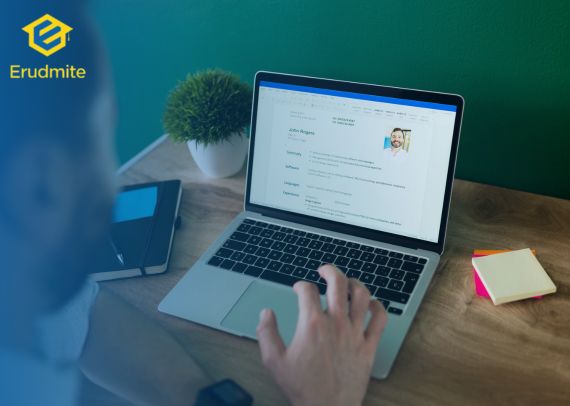
Introduction: From Optional to Essential
Not long ago, a personal website was something only designers or entrepreneurs bothered with. Today, in 2025, the story is different. A simple, well-built website has become one of the smartest ways for students — especially those from Dubai looking to study in the UK — to showcase who they are.
Think about it: when recruiters or admissions officers type your name into Google, what comes up? A scattered LinkedIn profile? Random Instagram photos? Or a polished site that tells your story with clarity and professionalism?
Why Personal Websites Matter for Students
- You control the narrative.
Social media can be messy. A website lets you decide what people see first. - It proves digital literacy.
Even if you’re not a tech student, showing that you can set up and manage a site demonstrates initiative. - It’s a living portfolio.
Whether you’re applying for MSc Information Technology with Data Analytics at UWS London or an MBA in Luxury Branding, a website is a dynamic space to host projects, reflections, and experiences. - It builds credibility.
Recruiters see thousands of CVs. A link to your website signals professionalism and effort.
What to Include in a Student Website
A personal site doesn’t need to be complex. It should be clear, authentic, and updated regularly.
Core sections:
- About Me: A short, story-driven introduction.
- Academic Work: Projects, dissertations, or research summaries.
- Career Interests: A page linking your studies to the jobs you’re targeting.
- Blog/Insights: Short reflections on what you’re learning (great for SEO and building thought leadership).
- Contact Information: A professional way for recruiters or universities to reach you.
Optional add-ons:
- CV download link.
- Portfolio (design, coding, writing, or even event participation).
- Testimonials or references from professors/mentors.
How Websites Complement CVs and LinkedIn
A CV shows what you’ve done. LinkedIn shows who you know. A personal website shows who you are.
For example:
- A CV may list “Data Analytics Project.”
- LinkedIn may show classmates liking your post about it.
- A website can display the actual dataset, your code snippet, and your reflections on what worked.
That depth makes you memorable.
Cultural Angle: Why This Matters for UAE Students
In the UAE, students often rely heavily on standardised CVs or agency-driven applications. While useful, these don’t always bring out individuality. A personal website breaks that pattern.
It tells UK universities: “I’m not just another application number. I’ve thought deeply about who I am and where I’m headed.”
For Dubai students in particular, where competition is high and many peers aim for similar courses abroad, this level of differentiation is gold.
Practical Benefits in Admissions and Careers
- University Applications: Admissions teams appreciate clarity. A well-structured site that links to your personal statement and references can subtly reinforce your application.
- Job Hunting: Recruiters Google you. A website gives them something positive to find.
- Networking: Sharing your site link at events or alumni meetups makes you unforgettable.
- Freelancing/Side Hustles: If you’re exploring part-time opportunities during study, a website is a ready-made portfolio.
Standing Out When HR Has No Time
Let’s be honest: most HR professionals don’t have the luxury of reading every CV line by line. Many use automated tracking systems (ATS) that filter applications in seconds.
So how do you stand out in such a crowded field? By giving recruiters something different. A personal website — regularly updated with your projects, internships, and reflections — becomes your living portfolio.
Instead of being buried in a stack of CVs, you control the first impression: a recruiter types your name into Google and finds a clear, professional site that instantly shows your value.
It’s not just a CV replacement — it’s a way of saying, “I’m serious about my career, and here’s the proof.”
AI-Driven Hiring: Why Websites Give You an Edge
Recruitment in 2025 is increasingly AI-driven. Companies use tools that scan keywords, analyse online behaviour, and even rank candidates based on digital presence.
Here’s where a personal website becomes your competitive advantage:
- Keyword-rich content: If your site mentions your skills (e.g., “data analysis with Python” or “luxury brand strategy”), it boosts your searchability.
- Authenticity filter: While AI can scan CVs, it struggles to interpret personality. A website adds depth that makes you human, not just a keyword match.
- Longevity: LinkedIn is crowded. Job boards are temporary. A personal website is permanent — and Google loves long-standing, active sites.
In short: as hiring becomes more digital, being digitally visible on your own terms is no longer optional.
Discipline-Specific Portfolio Ideas
Your website should reflect your industry. Here are examples by field:
- IT & Data Students: Upload GitHub links, dashboards, or mini case studies.
- Business & Finance Students: Share market analyses, internship reflections, or leadership experiences.
- Creative Fields: Use galleries for design, writing samples, or video projects.
- Healthcare & Social Sciences: Add summaries of community projects, research papers, or volunteer work.
This way, your site speaks the language of your future employer.
Step-by-Step: Building Your First Student Website
- Choose a platform: WordPress, Wix, or Squarespace for flexibility. GitHub Pages if you’re in IT.
- Buy a domain: Ideally yourname.com. It’s a small investment in credibility.
- Pick a clean template: Minimalist designs always look professional.
- Write your content: Start with About Me, CV, and one project. Add as you grow.
- Optimise for mobile: Most recruiters will view on their phones.
- Link everywhere: Add your site to your LinkedIn, email signature, and CV.
Common Fears (and Why They Don’t Hold Up)
- “I’m not technical.” Platforms like Wix, WordPress, and Notion make it drag-and-drop simple.
- “I don’t have enough content.” Start small — even a two-page site with your bio and CV is better than nothing.
- “What if people judge me?” They will — positively. Having a site shows confidence, not arrogance.
Examples of Impact
- A UWS London MSc IT student showcased coding projects on her site; a recruiter found her through Google and offered an internship.
- A Dubai-based student applying for MBA in Luxury Branding used her website to highlight retail projects and reflections. The admissions team mentioned it positively in her interview.
- Creative graduates in design and marketing often land freelance gigs directly through their portfolio pages.
Future-Proofing: Why 2025 Is the Right Time
AI, digital branding, and online networking are redefining employability. Employers want candidates who are visible, adaptable, and credible. A personal website ticks all three boxes.
In a world where CVs are scanned by algorithms and LinkedIn feels overcrowded, your own website is the one space you truly own.
How Erudmite Helps Students Go Beyond
At Erudmite, we often remind students: your SOP isn’t a script — it’s a mirror. The same applies to personal websites. We guide students to:
- Clarify what to include on their site.
- Align content with career goals.
- Connect websites to broader strategies like alumni networking, LinkedIn visibility, and career counselling in Dubai.
For students aiming to study in the UK, this extra layer of personal branding makes you stand out in admissions and beyond.
Conclusion:
In 2025, your personal website is more than an accessory — it’s your digital handshake.
It’s the difference between being another CV in a stack and being the student who already feels like a professional.
Don’t overthink it. Start simple, grow with time, and let it reflect you. Because in an increasingly competitive world, visibility is not optional — it’s your edge.
FAQs
1. Do I need a website if I already have LinkedIn?
Yes. LinkedIn is important, but a personal website gives you full control over design, narrative, and focus.
2. How much does it cost to maintain?
A basic domain + hosting can cost as little as £30–50 a year — a small price for credibility.
3. What if I change careers later?
Your site can evolve with you. Think of it as a lifelong portfolio, not just for one phase.
4. What if I’m not a confident writer?
Focus on clarity, not fancy words. Even short, simple descriptions of projects are valuable.
5. Can my website replace a CV entirely?
Not yet. Most employers still ask for a CV — but linking your site inside it gives you an edge.
6. Should I include hobbies or keep it professional?
A balance works best. Mention hobbies that show transferable skills (e.g., teamwork in sports, creativity in photography).
7. How often should I update my site?
At least once every semester — or whenever you complete a major project, internship, or achievement.
8. Can Erudmite help me with this?
Yes. Through our one-on-one education counselling and student career planning in Dubai, we guide students in building professional assets — including personal websites — that align with UK university goals.






